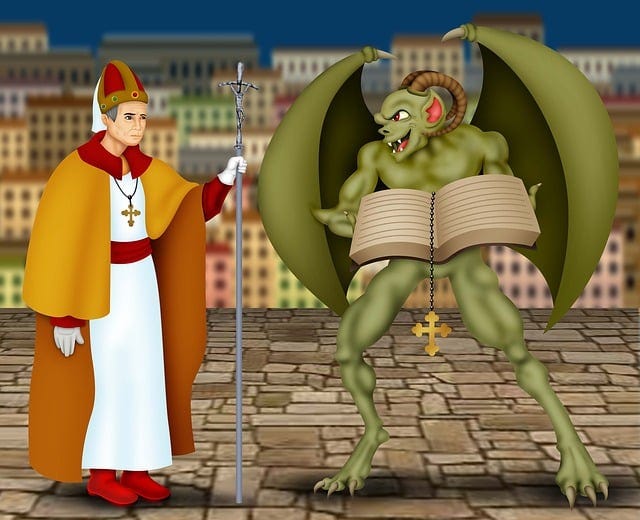The Deep State, a political conspiracy theory, has gained traction and prominence recently, particularly in the United States. This controversial concept suggests that a secretive and influential group of individuals, unelected bureaucrats, and intelligence agents manipulate and control the government behind the scenes.
Proponents of the Deep State theory argue that this group's influence extends across party lines and that they can shape policy, control the media, and suppress dissent. In this article, we will examine the origins of the Deep State conspiracy theory, analyze its claims, and discuss the implications of its existence.
Origins of the Deep State Conspiracy Theory
The term "deep state" can be traced back to the Turkish phrase "derin devlet," which refers to a clandestine network of military officers, intelligence operatives, and influential bureaucrats that operates to preserve the power and authority of the state. Although the concept has its roots in Turkey, it has since been adopted and adapted to describe similar alleged networks in other countries.
The Deep State conspiracy theory gained significant attention in the United States following the 2016 presidential election. It was fueled by accusations that unelected bureaucrats and intelligence officials were working against the newly-elected administration. Various media outlets and commentators have perpetuated these claims, arguing that this secretive group undermines the democratic process and operates above the law.
Claims and Evidence
Proponents of the Deep State conspiracy theory often point to various incidents and circumstances as evidence of its existence. Some of these claims include the following:
Leaks and whistleblowers: Critics argue that leaks of sensitive information to the media, often by anonymous sources within the government, are part of a coordinated effort to undermine or discredit specific political figures. They contend whistleblowers who expose government wrongdoing are part of the Deep State's agenda to manipulate public opinion.
Intelligence agencies: Some believe that agencies such as the CIA and NSA hold disproportionate influence within the government and use their power to shape policy and control decision-making. The existence of covert operations and secret surveillance programs is often cited as proof of their remote control.
Bureaucratic resistance: Proponents of the Deep State theory argue that unelected bureaucrats intentionally obstruct or slow down the implementation of policies that conflict with their interests or the agenda of the alleged shadow government.
Media manipulation: The Deep State conspiracy theory also claims that the hidden power structure controls or heavily influences the mainstream media. It is argued that the media actively promotes the Deep State's agenda by suppressing dissenting voices and presenting biased information.
Criticism and Debunking
Skeptics of the Deep State conspiracy theory argue that the evidence presented by its proponents is often circumstantial, anecdotal, or based on conjecture. They maintain that the claims need more concrete proof and are often rooted in misunderstandings or misinterpretations of complex bureaucratic processes. Key counterarguments include:
Confirmation bias: Critics assert that proponents of the Deep State theory may be susceptible to confirmation bias, where they only focus on evidence that supports their beliefs while ignoring or dismissing contradictory information. That can lead to a distorted view of events and situations.
The complexity of government: The vast size and complexity make it difficult for any single group to exert total control. The multiple layers of bureaucracy, checks and balances, and competing interests within government agencies make it improbable that a unified Deep State could effectively control policy and decision-making.
Whistleblowers and leaks: While leaks and whistleblowers have played a role in exposing government wrongdoing, these actions do not necessarily indicate a coordinated Deep State conspiracy. Whistleblowers often have a range of motivations, and leaks can result from individual actions rather than a coordinated effort.
Media diversity: Although there are instances of media bias and influence, the wide variety of media outlets makes it unlikely that a single hidden power structure could control the entire media landscape. With the rise of the internet and social media, the dissemination of information has become increasingly decentralized. That has led to the proliferation of alternative news sources and independent journalism, challenging the notion that a single Deep State entity could effectively control the media narrative.
Implications and Consequences
Regardless of the integrity of the Deep State conspiracy theory, its existence and prominence in public discourse have significant implications and consequences.
Erosion of trust in institutions: The Deep State narrative can contribute to a decline in public trust in government institutions and the media. This distrust can make it difficult for governments to function effectively and for citizens to make informed decisions.
Political polarization: The Deep State conspiracy theory has been used by political actors to delegitimize opponents and promote an "us versus them" mentality. That can deepen political divisions and further polarize the political landscape.
Conspiracy thinking: The popularity of the Deep State theory has contributed to a broader acceptance of conspiracy thinking in society. That can lead to the spread of misinformation, mistrust in experts and institutions, and the rejection of evidence-based reasoning.
Conclusion
The Deep State conspiracy theory has captured the imagination of many and sparked a heated debate on the nature of power and influence in modern politics. While its proponents argue that it exposes a hidden power structure that undermines democracy, skeptics contend it is an unfounded and dangerous narrative.
As with any conspiracy theory, it is essential to approach the Deep State concept with critical thinking, skepticism, and an open mind. Understanding political power and influence complexities is vital for fostering a healthy and functioning democracy. Weighing the evidence, considering alternative explanations, and evaluating the credibility of sources is crucial in forming an informed opinion on the matter.




